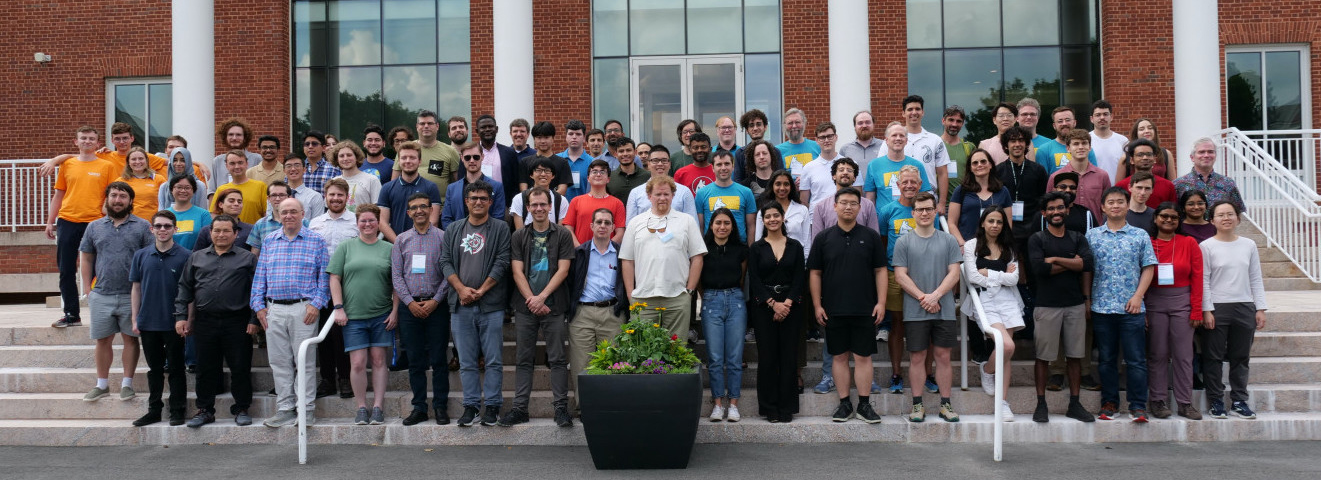Ph.D. Student Attends Prestigious Wolfram Innovative Technology Summer School
August 2023
Michael Ostroff, a physics Ph.D. student in FAU’s Machine Perception and Cognitive Robotics Laboratory and the Rubin and Cindy Gruber Sandbox, landed a coveted position at the Wolfram Summer School this year.
The intensive program is held in-person at Bentley University, in Waltham, MA, and offers students a unique educational and career opportunity to explore and create projects at the frontiers of science, technology, and innovation. 
The Wolfram program is designed so that every student has an opportunity to interact with Stephen Wolfram, the program’s namesake. Wolfram is the creator of Mathematica, Wolfram|Alpha, and the Wolfram Language; the author of A New Kind of Science; and the founder and CEO of Wolfram Research. During the summer session, he also attends student presentations and gives lectures on strategic topics.
“It was such a meaningful chance to talk with Stephen Wolfram about my ideas, meet people who could help me with my physics research, and learn more about Mathematica’s functionality,” shared Ostroff.
Over the course of the three-week session, which ran from June 25 to July 15, students benefited from an immersive experience and had instruction, social, and project-based programming seven days a week. All students were assigned to a project mentor to discuss project ideas which typically reflect the career and educational objectives of each student. At the end of the program, students individually presented their projects to the group.
Earlier this year, Ostroff presented his work on fractals from Mandelbrot sets at a University event, which he made using Wolfram’s Mathematica programming language and the knowledge library in the Rubin and Cindy Gruber Sandbox.
“Mathematica allows me to easily compile new code into C automatically from symbolic equation inputs,” explained Ostroff. “This makes it able to generate fast, efficient code on the fly without having to worry about C's type system nor various minutia. I have the flexibility and power of Mathematica’s symbolic manipulation paired with C’s speed and efficiency.”
A beautiful photo of his fractals work earned him an honorable mention in the 2022 Art of Science Photography and Video contest, hosted by FAU’s Division of Research.
Among his other current research projects is a post-quantum encryption project with William Hahn, Ph.D., Schmidt College of Science assistant professor of mathematics and co-director of FAU’s Machine Perception and Cognitive Robotics Laboratory and the Gruber Sandbox. Specifically, the pair is studying pseudorandom key generation.
“There’s a post-quantum encryption scheme where you encrypt a block of data with an equally large key. Unless you have the key used to encrypt it, you cannot decrypt it. You can’t even randomly guess the key and be able to tell if it’s the correct key,” explained Ostroff. “What we’re working on is creating code that uses chaotic, but fully deterministic, calculations to generate large chunks of pseudorandom data from a smaller initial chunk of data, which is then used as the encryption key.”
Ostroff anticipates earning his degree in Summer 2024. Following his graduation, he is keeping his options open, but is considering pursuing a career in the private sector, teaching at a university, or performing research for the government at a national lab.

